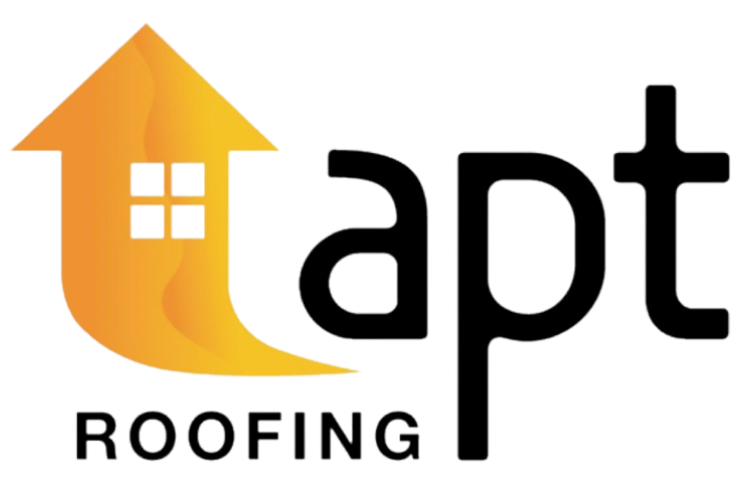Real estate roofing refers to the evaluation, maintenance, and improvement of roofing systems within the context of property value and real estate transactions. This encompasses various types of properties, including single-family homes, strata and reals state roofing. Roofing plays a critical role in the overall health and value of these properties, affecting everything from curb appeal to structural integrity.
Importance of Roof Condition in Real Estate
The condition of a roof is a significant factor in real estate. For home owner roofing, a well-maintained roof not only ensures the safety and comfort of the residents but also preserves the property’s value. In the context of strata properties, roofing condition impacts the collective maintenance responsibilities and financial planning of the community. For real estate transactions, the state of the roof can influence buyer interest, the final sale price, and even the ability to secure financing. Therefore, keeping the roof in excellent condition is crucial for all parties involved in real estate.
The Impact of Roofing on Property Value

How Roof Condition Influences Home Owner Roofing Value
The condition of the roof directly affects home owner roofing value in several ways:
- Curb Appeal: A well-maintained roof enhances the exterior appearance of a home, making it more attractive to potential buyers.
- Structural Integrity: A healthy roof protects the structure from water damage, mold, and other issues that can degrade the property’s integrity.
- Energy Efficiency: Modern, well-insulated roofing systems can improve a home’s energy efficiency, lowering utility costs and appealing to eco-conscious buyers.
- Reduced Maintenance Costs: A roof in good condition reduces the likelihood of future repairs, providing peace of mind to prospective buyers and justifying a higher sale price.
The Role of Roofing in Strata Properties and Real Estate
In strata properties, the roofing system is a shared asset, and its condition impacts all owners within the community. Here’s how:
- Collective Maintenance: Regular maintenance and timely repairs of the strata roofing system are essential to avoid costly emergency repairs and ensure the longevity of the building.
- Financial Planning: The condition of the roof influences the strata community’s financial planning, including reserve fund contributions and special assessments.
- Property Value: Well-maintained roofs in strata properties enhance the overall property value, making units more attractive to potential buyers.
For real estate agents and investors, understanding the role of roofing in property valuation is critical. They must assess roofing condition as part of their due diligence to accurately appraise the property and advise clients.
Factors Affecting Roofing Condition and Property Value
Age and Material of the Roof
The age and material of the roof are primary factors influencing its condition and, consequently, the property’s value:
- Age: Older roofs may have worn-out materials, leading to potential leaks, structural weaknesses, and a need for replacement. The typical lifespan of roofing materials varies, with asphalt shingles lasting around 20-30 years, metal roofs up to 50 years, and tile or slate roofs potentially lasting over 100 years.
- Material Quality: High-quality materials can significantly extend the life of the roof and enhance the property’s value. Buyers are often willing to pay a premium for home owner roofing with durable, long-lasting roofing materials.
Maintenance History and Quality of Repairs
Regular maintenance and high-quality repairs are essential for preserving the roof’s condition:
- Maintenance Records: Documented maintenance records provide evidence of ongoing care, reassuring buyers about the roof’s reliability.
- Professional Repairs: Using licensed professionals for repairs ensures that issues are addressed correctly, preventing future problems and maintaining the roof’s integrity.
Local Climate and Environmental Factors
The local climate and environmental conditions also impact roofing condition:
- Weather Exposure: Roofs in regions with extreme weather conditions (heavy rain, snow, hail, high winds) are more susceptible to damage and require robust materials and regular maintenance.
- Environmental Factors: Proximity to coastal areas can expose roofs to saltwater corrosion, while urban environments may expose roofs to pollution and debris, necessitating more frequent inspections and cleaning.
Roof Inspections and Real Estate Transactions

The Importance of Pre-Sale Roof Inspections
Pre-sale roof inspections are a critical step in the real estate process, providing valuable information to both sellers and buyers:
- Seller Benefits: Identifying and addressing roof issues before listing can prevent last-minute surprises, facilitate smoother transactions, and potentially increase the sale price.
- Buyer Assurance: Buyers gain confidence knowing the roof has been professionally inspected, which can influence their decision to proceed with the purchase.
How to Conduct a Thorough Roof Inspection
Conducting a thorough roof inspection involves several steps:
- Visual Inspection: Examine the roof for visible signs of damage, such as missing or damaged shingles, cracks, and moss growth.
- Structural Assessment: Check for sagging areas or uneven surfaces that could indicate underlying structural issues.
- Interior Check: Inspect the attic and ceilings for signs of water damage, mold, or insulation problems.
- Professional Evaluation: Hire a certified roofing inspector to conduct a comprehensive assessment, including the roof’s structural integrity, material condition, and potential issues.
Common Roofing Issues That Decrease Property Value
Identifying and Addressing Leaks and Water Damage
Leaks and water damage are some of the most common roofing issues that can significantly decrease property value. Here’s how to identify and address these problems:
- Signs of Leaks: Look for water stains on ceilings and walls, damp spots, or mold growth. These are clear indicators of leaks.
- Inspection: Regularly inspect your roof, especially after storms, to catch leaks early. Check around chimneys, skylights, and vents where leaks are more likely to occur.
- Addressing Leaks: Once identified, leaks should be promptly repaired by a professional to prevent further damage. This might involve replacing damaged shingles, sealing gaps, or repairing flashing.
The Impact of Poor Insulation and Ventilation
Poor insulation and ventilation can also harm the roofing system and reduce property value:
- Heat Buildup: Without proper ventilation, heat can build up in the attic, causing shingles to deteriorate faster and increasing cooling costs.
- Moisture Problems: Inadequate ventilation can lead to moisture buildup, promoting mold growth and wood rot, which compromise the roof’s structural integrity.
- Energy Efficiency: Poor insulation reduces energy efficiency, making the home less attractive to potential buyers. Improving insulation and ventilation can enhance comfort and lower energy bills, thereby increasing property value.
Enhancing Property Value with Roof Upgrades

Benefits of Roof Replacement vs. Repair
When it comes to enhancing property value, deciding between roof replacement and repair is crucial:
- Roof Replacement: While more costly upfront, replacing an old or severely damaged roof can significantly boost property value. A new roof offers enhanced aesthetics, improved energy efficiency, and peace of mind for buyers.
- Roof Repair: In cases of minor damage, timely repairs can prolong the life of the roof without the expense of a full replacement. However, repeated repairs might indicate the need for a replacement in the near future.
Choosing High-Value Roofing Materials
Selecting high-quality roofing materials can further enhance property value:
- Asphalt Shingles: A popular and affordable option, modern asphalt shingles come in various styles and colors, offering durability and aesthetic appeal.
- Metal Roofing: Known for its longevity and energy efficiency, metal roofing is a high-value option that can last up to 50 years or more.
- Tile and Slate Roofing: These premium materials are highly durable and add a classic, upscale look to the property, significantly boosting its market value.
Roofing Considerations for Strata Properties
Unique Challenges and Solutions for Strata Roofing
Strata properties present unique roofing challenges that require special consideration:
- Shared Responsibility: Roofing in strata properties is a collective responsibility. Coordinating repairs and maintenance can be challenging, requiring clear communication and agreement among all owners.
- Budgeting: Adequate budgeting for roofing maintenance and repairs is essential. Strata communities should maintain a reserve fund to cover unexpected roofing issues.
- Regular Inspections: Scheduled inspections and maintenance are crucial to prevent minor issues from escalating into major problems.
Coordinating Roofing Projects in Strata Communities
Effective coordination is key to successful roofing projects in strata communities:
- Planning: Detailed planning and clear timelines are essential to minimize disruption and ensure all owners are informed.
- Professional Management: Hiring a professional property management company can facilitate the coordination and execution of roofing projects, ensuring compliance with regulations and quality standards.
- Communication: Regular updates and meetings with owners keep everyone informed and involved, fostering cooperation and transparency.
Tips for Homeowners and Real Estate Agents

How Homeowners Can Maintain and Improve Roof Condition
Homeowners can take proactive steps to maintain and improve their roof’s condition:
- Regular Inspections: Conduct regular inspections to identify and address issues early. Check for missing or damaged shingles, signs of leaks, and proper ventilation.
- Timely Repairs: Address any damage promptly to prevent it from worsening. Small repairs are more cost-effective than major fixes.
- Gutter Maintenance: Keep gutters clean and free of debris to ensure proper water drainage and prevent roof damage.
Advice for Real Estate Agents on Evaluating Roofing in Listings
Real estate agents play a crucial role in assessing and presenting the condition of a property’s roof:
- Thorough Inspections: Recommend thorough roof inspections for properties on the market. Understanding the roof’s condition helps set accurate property values.
- Highlight Upgrades: Emphasize any recent roof upgrades or replacements in listings. A new or well-maintained roof can be a significant selling point.
- Educate Buyers: Inform potential buyers about the benefits of a good roof and any maintenance or repair needs. Providing clear, honest information builds trust and facilitates smoother transactions.








